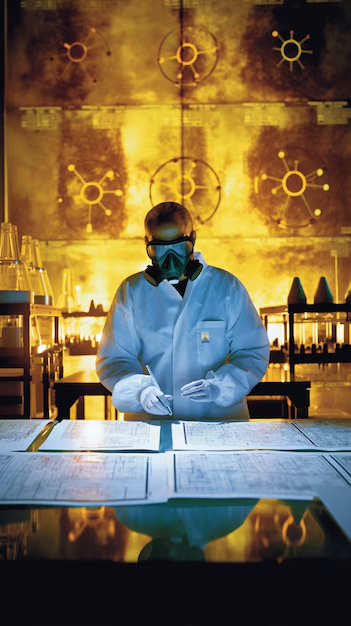
Introduction to B.Tech Chemical Engineering
Chemical Engineering is a dynamic and evolving field that combines the principles of chemistry, physics, biology, and mathematics to solve problems related to the production or use of chemicals. A Bachelor of Technology (B.Tech) in Chemical Engineering is designed to cater to the ever-growing demands of this industry by training students to design, manufacture, and operate processes that convert raw materials into valuable products.
The Core of Chemical Engineering: What You Will Learn

The curriculum of a B.Tech in Chemical Engineering program covers a broad range of subjects that equip students with the necessary theoretical knowledge and practical skills. Early semesters typically focus on foundational engineering principles, including mathematics, physics, and an introduction to engineering design. As the program progresses, students delve deeper into specialized chemical engineering topics such as thermodynamics, fluid dynamics, heat and mass transfer, process design, and control.
Advanced Topics and Specializations
In the later years of the degree, students can specialize in areas like petrochemicals, pharmaceuticals, materials engineering, or environmental technology. These specializations are important as they align with industry needs and allow students to focus on their career interests. Advanced courses may cover topics like biochemical engineering, nanotechnology, or polymer science. Each course offers a look into cutting-edge applications of chemical engineering.
The Importance of Laboratory and Field Work
Practical training is a cornerstone of the B.Tech in Chemical Engineering program. Laboratories are fully equipped to simulate industrial scenarios, allowing students to gain hands-on experience with real chemical processes. This practical exposure is not only essential for understanding theoretical concepts but also helps students develop problem-solving skills critical for their professional life.
Internships and Industrial Training
Most universities also incorporate internships and cooperative education segments into the curriculum. These provide students valuable industry exposure and networking opportunities, which are instrumental for future employment. Internships are often done in partnership with leading chemical companies, offering insights into the practical challenges and innovations in the field.
Career Opportunities: Where Can a Degree Take You?
Graduates of a B.Tech in Chemical Engineering program have diverse career opportunities across multiple industries. They can work in sectors such as oil and gas, pharmaceuticals, healthcare, design and construction, pulp and paper, petrochemicals, food processing, specialty chemicals, polymers, and environmental health and safety industries.
Roles and Responsibilities
Chemical engineers are primarily concerned with the design, optimization, and operation of processes that transform raw materials into valuable products. Their roles may involve research and development of new substances, process engineering to improve production efficiency, compliance with environmental regulations, or management of resources in manufacturing plants.
Challenges and Rewards in Chemical Engineering

The Challenge of Sustainability
One of the significant challenges for chemical engineers today is developing processes that are environmentally sustainable. This includes creating technologies that reduce waste, improve energy efficiency, and minimize environmental impact. Addressing these challenges often requires innovative thinking and continuous improvement strategies.
The Reward of Making an Impact
Chemical engineers play a crucial role in tackling the world’s pressing issues like energy scarcity, health care, and environmental sustainability. The chance to make a real impact in these areas is highly rewarding. It gives professionals a sense of accomplishment and fuels their drive to innovate.
Staying Ahead: The Need for Continuous Learning
The field of chemical engineering is continually advancing with new technologies and theories. Staying successful in this field requires a commitment to lifelong learning. Professionals must keep abreast of the latest developments through ongoing education and professional development. This might involve pursuing advanced degrees, attending conferences, or obtaining certifications in specialized areas.
Conclusion: The Future of Chemical Engineering
The B.Tech in Chemical Engineering is more than just an academic degree; it is a gateway to a challenging and rewarding career that contributes significantly to the welfare of society and the environment. With the rapid advancements in technology and increasing global needs, chemical engineers are more crucial than ever. Aspiring engineers must be prepared to innovate and adapt to remain relevant and successful in this dynamic field.
This overview of a B.Tech in Chemical Engineering highlights both the program’s content and its potential for motivated students. Whether you’re excited by groundbreaking discoveries or improving technologies, a career in chemical engineering offers a unique mix of challenges and rewards.







